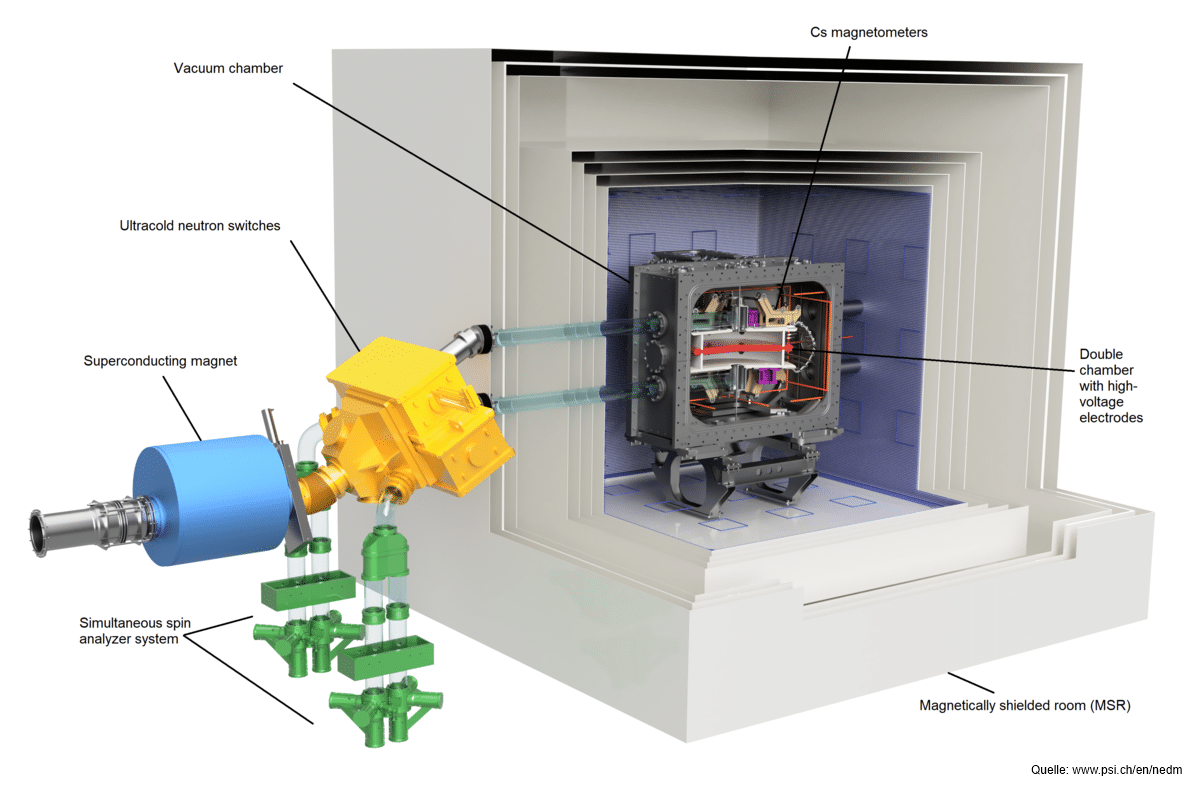
Benefits VD81 at a glance
- Gas-type independent measurement
- Variable: mobile operation with battery or permanent installation with a plugin power supply
- Fast: Adjustable min. logging rate of 50 ms for fast processes
- Flexible connection
- Chemically resistant ceramic sensor with FKM sealing
Particle Physics
The n2EDM project, conducted at the Paul Scherrer Institute in an international collaboration, searches for the neutron electric dipole moment of the (electrically neutral) neutron (nEDM).
The nEDM can be illustrated by the distribution of positive and negative charge inside the neutron. If a non-zero-valued nEDM can be detected with the sensitivity targeted in the n2EDM experiment, it would mean that an important fundamental symmetry (charge-parity CP) in particle physics is being violated. This might help to understand why less antimatter than expected exists in the Universe.
So far, astronomers have observed mainly normal matter.
Challenge
The operating pressure in the helium container of the superconducting magnet, a polarization filter which only allows neutrons in one of the spin states to pass, must be monitored. The operating pressure is supposed to be constantly retained at 1 psi (69 mbar) and must not drop.
Solution
Independent of the gas-type, the VD81 measures absolute pressure in rough vacuum from 1600 to
1 mbar with a chemically resistant ceramic sensor.
Under the influence of the pressure, the thin membrane of the piezo sensor, on the back of which a resistance measuring bridge is applied, deforms. The resulting deflection of the measuring bridge serves as parameter for the absolute pressure acting on the diaphragm.
Insensitive to contamination, the vacuum meter is also suitable for harsh industrial processes.
References
A model of our VD81 has been in use at the Laboratory for Particle Physics of the Swiss Paul Scherrer Institute for 13 years





